Ham bhi dariya hain
Hamein apna hunar maloom hai...
aaj ik aur baras biit gayā us ke baġhair
jis ke hote hue hote the zamāne mere

Hamein apna hunar maloom hai...
Hamein apna hunar maloom hai...
Since the early days of the Urdu language, Women composed poetry of the highest literary merit. A lot is lost to time, as much of the manuscripts didn't survive, but what's left is nothing short of a marvel. Very few women were able to compile a Deewan. Mahlaqa Bai Chanda was the first one who collected a Deewan that still survives.

After 78 rpm records became a thing in India, Gauhar Jaan was the first whose voice was recorded and reproduced for sale. Countless female artists blessed the art of singing with their voices. Talking in the context of Ghazal singing, Noor Jahan, Iqbal bano, Begum Akhtar, Fareeda Khanum, Abida Parveen and many others made significant contributions and are still listened to after decades.

The history of Urdu fiction is much shorter compared to that of Urdu poetry. The first novel by a woman was written in 1880, and it took her six months to complete it. Since woman's writing was still considered taboo then, It took her another decade and a half to get it published. This novel was Islah-un-Nisa and was written by Rasheed-un-Nisa. The world of Urdu fiction since has produced geniuses like Ismat Chughtai and Qurratulain Hyder.

Although women are taking almost every discipline forward with them, preassumptions prevail. Women make the world it is. In every department of life, women have contributed with grace and hard work. This women's day, Let's take some time to thank every woman in our lives for gracing every role they take, standing up in times of need, and being what they are.

Watch this exclusive video on the occasion of Women's Day



Read these interesting articles to explore women's writings and discourse.
Read these interesting articles to explore women's writings and discourse.

Women and Urdu writing have a long history of the association. The nature of this connection, however, has been complex and unique. Hakim Fasihuddin Balkhi documents the status and works of Urdu poets in Baharistan-e-Naz, demonstrating the long history of female interest in the Urdu language and the feminine impact on Urdu literature. 174 women poets who composed poetry in a classical manner are mentioned in this book.
Read MoreEvery woman's day, Literati gather and pay tribute to the women of literature. Women's "immeasurable" participation is discussed. It is expressed how indebted this literary domain is to women's contributions. As the day passes, people return to their standard perception of women being lousy creators. The situation is even worse if we discuss the case in the context of Urdu. But why? When we look at the canon of Urdu literature, it doesn't take much time to realize women are abnormally absent from the picture.
Read More
Rekhta pays tribute to women and their compositions that make the world as we know it.

